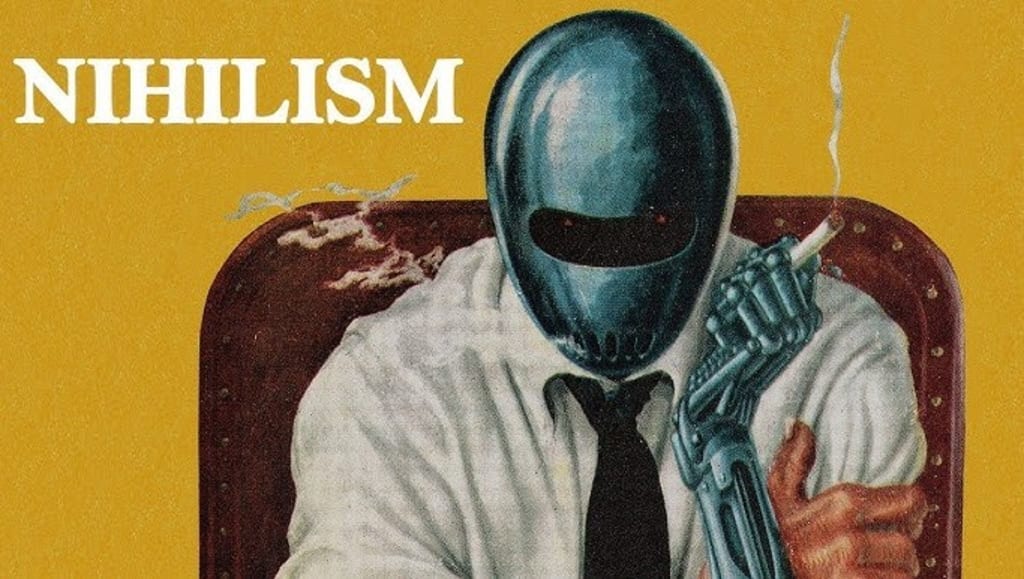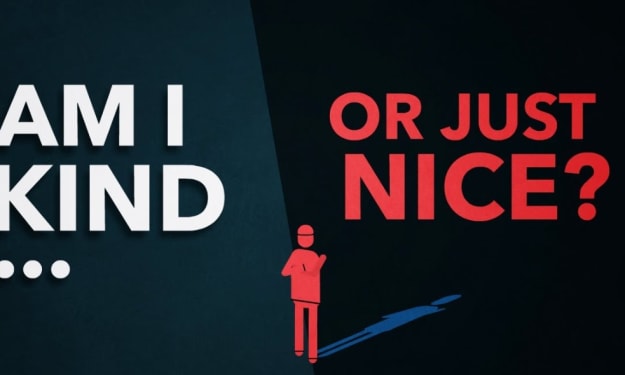
We all understand how it works. We are both born and die on the same day. We are aware of and understand everything that occurs in between, but we are unaware of everything that happened before and will occur following. It is, therefore, quite challenging to pinpoint the precise significance of our presence. How can we comprehend why we are here if we can't explain how or from where we came? In the same spirit, how can we determine whether our current behaviors are meaningful if we don't know where we're headed or what we will become? Since humans first developed consciousness, the question "What is the meaning of life?" has troubled humanity, and this uncertainty about our shared pasts and futures is to blame. As a species, we have never been able to respond definitively to this question. Still, many of us have sought solace in various ideologies to at least lessen the uneasiness it generates.
According to various faiths, a deity created the entire universe and placed each of us within it. That deity will utilize our actions on this planet to determine how and when we will spend eternity after death. Others believe that our love for our friends, family, and other loved ones gives life its meaning. Others think that life's worth comes from the fact that it even exists. However, life has no purpose for nihilists. All activity, pain, and emotions—both positive and negative—have no meaning or value at all.
Nihilism, or the belief in nothing, is this. The majority of us must have experienced nihilistic thoughts at some point in our lives. We have a profound sensation of meaninglessness, as though our existence is meaningless without inherent worth. This typically occurs when we start to doubt our preexisting ideas, but also right before we find new ones to cling to. You are transitioning from your parents' beliefs at this time, learning new things, having new experiences, and developing your worldview. And typically, these ideas start with the same straightforward question: why? A three-letter monosyllabic term with the power to make slick anything and anything that appears like the rock of your foundation. The realization that perhaps, just perhaps, your entire existence hasn't been what you believed it was will draw you into sadness like quicksand.
Just take a moment to think about your main principles and ask yourself, "Why?" What makes you think those things? From where did they originate? Who were they before? If you keep asking questions, there won't be any more answers, and you'll come to nothing. Despite all of the world's religions and scientific advancements, we still cannot respond satisfactorily to the "why" question.
On the other hand, the nihilist concludes that there is no reason at this point. There is simply no solution; there is nothing. As Alan Watts once stated, life is nothing more than a journey from the maternity hospital to the crematorium. The clue is in the name; "nihilism" is derived from the Latin words "nihil" (which means "nothing") and "ism" (which implies ideology). Though we need to help understand it correctly, it is the ideology of nothing.
Nihilism and pessimism are frequently confused, but they are fundamentally distinct. Pessimists anticipate the worst to happen. They tend to see things negatively and have a pessimistic outlook on life because they think that, in the end, evil will always triumph over good. And it is because of this that they are unique. Pessimists acknowledge that it is good in the world but do not believe that humans can fully realize it. On the other hand, nihilistic people hold no beliefs. They don't think the world is good or wicked, nor do they think it is. The nihilist believes that morality was produced by people, who also gave rise to good and evil, and that the world merely exists. Consider the metaphor of the glass cup. The glass should be seen as half full, according to optimists, while the glass should be seen as half empty, according to pessimists. Nihilists? They advise tossing the entire cup into the trash because it doesn't matter whether it is full or empty.
Everything is meaningless because we will all die, full or empty, good or evil. Nihilism is frequently contrasted with several different ideologies, including cynicism and apathy. But once more, they are all very distinct from one another. Therefore, accurately classifying your ideas into these categories can be more complex than you think. People are constantly driven by self-interest, according to cynics. They don't believe that someone can have motives that are good at their core. They have little faith in people and think we are all purely self-centered and just interested in advancing our interests. However, the cynic's belief that humans are imperfect implies that goodness exists someplace else, just not in people. Nihilism holds that there is no such thing as the outside world or good or evil. Because they don't think any of those things exist, so they don't perceive people as good or bad. They are merely characteristics we have given to objects. People with apathy don't care. They may think life has a purpose, but they don't seem to give a damn.
On the other hand, nihilism holds that there is no overarching plan or goal. Nothing to believe in, and as a result, nothing to mean. This reminds me of the nihilist conundrum. If you have no beliefs, then there is nothing for you to have any beliefs in. Nihilism, however, is the notion that nothing can exist since you now believe in something. Nihilism differs significantly from other philosophical concepts because it originated as a literary concept before evolving into a philosophical one. Its definition is, therefore, less precise than that of many different schools of thought.
Numerous people have given various reports, but these multiple explanations have been categorized throughout time, giving rise to various nihilisms. Political nihilism exists. Political nihilists think that all political, social, and religious order must be eliminated for mankind to advance as a species. And last, there is ethical nihilism. It disavows the notion of inviolable moral or ethical principles. Suppose we as a species are ever to achieve complete individual freedom. In that case, this kind of nihilism should not be adhered to, in which good and evil are exclusively determined by society. We are essentially free to do whatever we choose. The belief that life has no purpose or value is known as existential nihilism. We've been discussing this particular form of nihilism for most of this video since it is the most prevalent. Nihilists believe that things like the state, organized religion, and even social morality infringe on our right to personal freedom. Are we free if we are restricted from doing anything we desire? Or are we merely constrained by an inescapable mental chain for unknown reasons?
I came across the question, "If you had the choice to save your pet or a stranger, who should you save?" one night while surfing Reddit. Unsurprisingly, a resounding majority of respondents said their animal companion. When challenged, one commentator asked, "Why do you think that an individual's life is worth more than that of an animal?" And I am still waiting for a response. Of course, there were attempts to avoid the issue, but the nihilist's main objection is that "why" was never addressed. Why do we abide by these standards if we cannot explain why? It could be due to the existential terror and mental suffering resulting from accepting life's meaninglessness. Think about it for a moment: if life is truly pointless and everything we do has no value, then consider how far we've come with things like space exploration and the human rights movements, and then consider the possibility that it was all just a waste, a passing moment with no lasting impact in the grand scheme of things. Being aware that everything we go through, including the highs and lows, is ultimately pointless. We only need to laugh at reality's disarray; we are not required to comprehend it. Friedrich Nietzsche was an odd philosopher since he simultaneously fought for and against nihilism. He made the case that the only objective structure or order in our world is the one we impose on it. He once remarked, "Every belief, every believing something real is necessarily false, since there is simply no true world." He thought nihilism would reveal humanity's "truths" and "beliefs" as nothing more than a flaw in the Western mythos. He was quoted as saying, "God is dead." He wasn't referring to the actual gods of the religions; instead, he was metaphorically discussing religious groups' influence at the time and how individuals were beginning to forge their paths and discover their meanings in life, challenging the established order. However, Friedrich also argued against nihilism in the same sentence, claiming that the arrival of nihilism would push civilization towards a catastrophe that was just waiting to happen in the following centuries. A river that has run its course. And it is abundantly evident that this is true if one considers the most destructive civilizations in human history.
Long-standing cultural practices, convictions, institutions of religion, and even financial systems are destroyed, and nothingness begins to intrude. Consider this: If nothing matters and we are merely a collection of fleeting atoms, how can we possibly state with any certainty that abhorrent practices like slavery, apartheid, and nuclear war are bad? How can we categorize Adolf Hitler as one of the worst people to have lived simply because he attempted to obliterate an entire culture? Most people recognize that these things are all bad on some level, but the risk is that we will never be able to persuade someone else of our viewpoint since we cannot rationally support our feelings. Indeed, Friedrich had that precise concern. Since he continued to preach nihilism despite being aware of all these hazards, many people still held him responsible for the Nazi era. He believed that if we could overcome the eventual collapse of society that nihilism would bring about, we could devise a new strategy for mankind. He thought that for us as a species to advance, we must develop a new morality that rejects the prejudice of the past. Because ultimately, demolishing your old home should allow you to construct a more extensive and better home rather than leaving you homeless.
We as a species may be on the verge of another nihilism outbreak if you take a moment to stop and take in everything that is happening, especially on social media. Think about it: people abandon long-held cultural practices and religious beliefs to forge new paths. Religion no longer has any influence over what is morally acceptable. Anything now has a devoted following justifying why they have the right to do anything they want, so why not, no matter how despicable you think it is? Nobody can provide an answer to that query. The progress of humanity will continue to be very tiny, and eventually, none of us will be able to correct one another because "why are they wrong?" According to William Shakespeare, life is "but a walking shadow, a poor player who struts and frets his hour upon the stage and then vanishes; it is a tale told by an idiot, full of sound and fury but signifying nothing." If life is pointless and there is no reason to be here, we should try to make the best of the circumstances. We can just throw the glass away and drink straight from the tap until we're complete rather than considering it half full or half empty because life itself is sufficient justification for existing.
About the Creator
Ian Sankan
I am a writer with proven writing ability in various fields. I consider writing a passionate career and a platform through which I extend my intellectual ability.






Comments
There are no comments for this story
Be the first to respond and start the conversation.